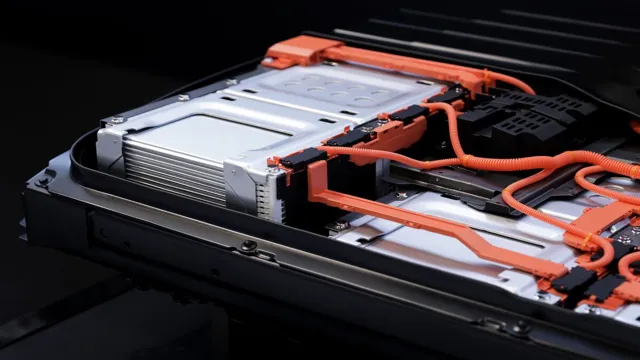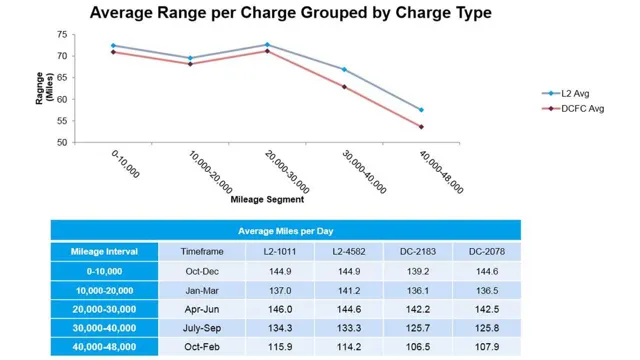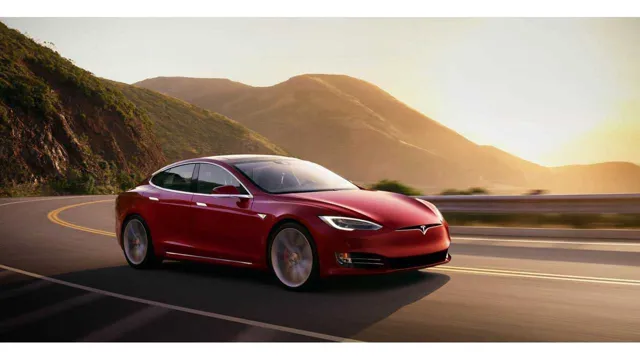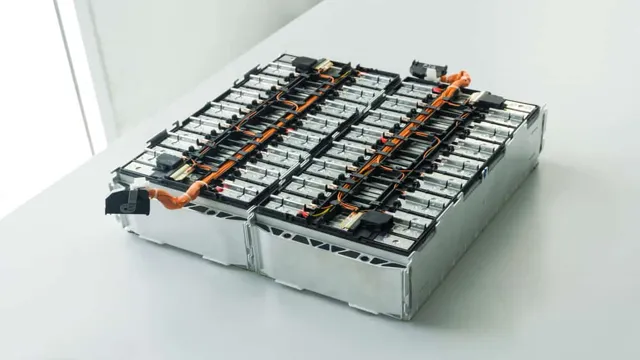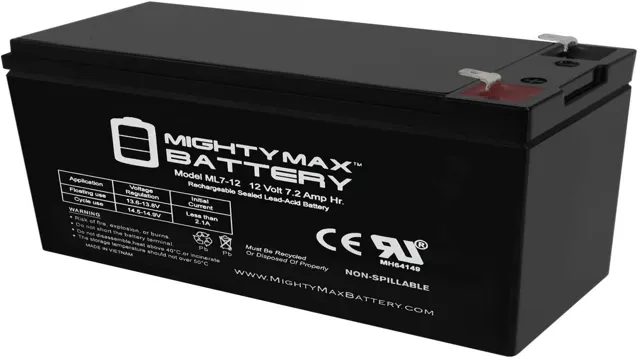Breaking Down Electric Car Battery Pack Size: How It Impacts Performance and Cost
Electric cars are becoming increasingly popular for a number of reasons, including their reduced environmental impact and lower operating costs. However, one of the major factors that can determine their overall performance is the size of their battery. When it comes to finding the perfect fit for your vehicle, there are many factors to consider, including range, weight, charging time, and cost.
In this blog, we’ll explore the different electric car battery sizes available and how to choose the right one for your needs. So, buckle up and join us on a journey through the world of electric car batteries!
Why Battery Size Matters
When it comes to electric cars, the battery pack size matters a lot! Why? Well, the battery pack is what powers the car, allowing it to run for longer distances. A larger battery pack size means that the car can travel farther on a single charge, which is especially beneficial for long road trips or commutes. Additionally, a larger battery pack size usually equates to a more powerful electric motor, providing better acceleration and overall performance.
However, larger battery packs also come with a higher price tag and may take longer to charge compared to smaller battery packs. It’s essential to balance your driving needs with the cost and charging time when selecting the right electric car battery pack size. Overall, a larger battery pack size can provide more extended ranges and better performance, but consider your budget, charging habits, and driving needs when making your selection.
Increasing Range vs Decreasing Weight
When it comes to electric vehicles, battery size is a crucial factor in determining their range. Many people might think that decreasing the weight of the EV is the key to improving range, but this is not necessarily the case. While a lighter vehicle will require less energy to move, a larger battery pack will provide more power, leading to improved range.
The battery pack works by storing electricity that powers the vehicle’s electric motor, and the larger the battery, the more energy it can hold. This means that even though a larger battery pack may increase the weight of the vehicle, it can also significantly increase the range of the EV. So, when choosing an electric vehicle, it is essential to consider battery size and its impact on range, rather than solely focusing on weight reduction.
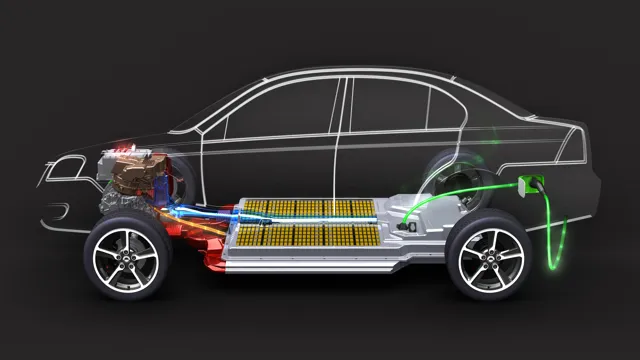
How to Determine Battery Needs
Battery sizing is an essential factor that needs to be considered while choosing a battery for your application. The size of the battery directly impacts the power it can deliver and the run time it can provide. Choosing the right battery size can ensure optimal performance, safety, and longevity of the battery.
It is crucial to consider the applications’ power requirements, environmental conditions, and the battery chemistry while determining the battery size. A battery that is too small may not be able to supply sufficient power, leading to premature failure, while a battery that is too large may be more expensive and may take up more space than necessary. Therefore, it is essential to determine the appropriate battery size that meets the application’s power requirements and provides a balance between cost and performance.
Comparison of Popular Models
When looking at popular electric car models, there is a clear difference in battery pack size. For example, the Tesla Model S has a battery pack size of 100 kWh, while the Nissan Leaf has a 40 kWh battery pack. This means that the Tesla Model S has a longer range than the Nissan Leaf, with up to 402 miles per charge compared to 149 miles per charge.
The Chevrolet Bolt and the Hyundai Kona Electric fall in between these two models, with battery pack sizes of 66 kWh and 64 kWh, respectively. It’s important to note that battery pack size has a direct impact on the overall range of an electric car, so it’s important to consider how far you will need to travel on a single charge before making a purchase. Additionally, battery pack size can impact the charging time, with larger battery packs often taking longer to charge.
Ultimately, it’s up to the individual consumer to weigh the pros and cons and choose the electric car that best fits their needs and lifestyle.
Tesla Model S vs Chevy Bolt
When it comes to electric vehicles, the Tesla Model S and Chevy Bolt are two of the most popular models on the market today. While both cars offer great performance and features, they differ in a few key areas. The Model S is known for its sleek design, powerful electric motor, and luxurious interior.
It also has a longer driving range, making it a great choice for long trips. On the other hand, the Bolt is more affordable and has a more practical design. It’s also a bit smaller and has fewer features than the Model S.
Ultimately, the choice between the two will depend on your personal preferences. If you’re looking for luxury and performance, the Model S is a great choice. If you’re on a tighter budget and want something more practical, the Chevy Bolt might be a better fit.
Either way, both cars are excellent options for anyone looking to make the switch to electric.
Nissan Leaf vs BMW i3
When it comes to electric cars, the Nissan Leaf and BMW i3 are both popular choices among drivers. The Nissan Leaf is known for its affordable price tag, while the BMW i3 is praised for its luxurious features and sleek design. One major difference between the two models is their range.
The Nissan Leaf has a range of approximately 150 miles, while the BMW i3 has a range of about 114 miles. However, the i3 offers an option to extend its range with a gasoline-powered range extender. Performance-wise, the BMW i3 has the edge with quicker acceleration and a more sporty driving experience, but the Leaf is no slouch with smooth handling and a comfortable ride.
Ultimately, the choice between the two comes down to personal preference, lifestyle needs, and budget. Those seeking an affordable option with a decent range may lean towards the Nissan Leaf, while those looking for a more luxurious drive with the option to extend range may lean towards the BMW i It’s important to do research and test drive both to make an informed decision.
Ford Mustang Mach-E vs Volkswagen ID.4
The Ford Mustang Mach-E and Volkswagen ID.4 are two of the most popular electric SUVs in the market today. While both models offer exceptional performance and features, they do have some significant differences that set them apart.
The Mustang Mach-E offers a sportier driving experience thanks to its sleek design and powerful electric motors. It also boasts an impressive range of up to 300 miles, making it ideal for long journeys. On the other hand, the Volkswagen ID.
4 is more practical, with a larger cargo capacity and a roomier interior. It also has a more affordable starting price, making it an attractive option for budget-conscious buyers. Ultimately, the choice between these two models comes down to personal preference and priorities.
If you’re looking for a sporty and powerful SUV with a long range, the Mustang Mach-E is the ideal choice. However, if practicality and affordability are more important to you, the Volkswagen ID.4 is the better option.
Either way, both vehicles offer a great driving experience and are excellent choices for those looking to make the switch to electric vehicles.
Future of Battery Technology
As the demand for electric cars grows, the importance of battery technology cannot be overstated. One key aspect of battery technology that many people often focus on is the size of the battery pack, which determines the vehicle’s range. In the future, as battery technology continues to evolve, we can expect to see significant improvements in battery size and efficiency, allowing electric cars to travel even further on a single charge.
As battery pack sizes increase, electric cars will become more practical for long-distance travel, and the need for frequent recharging will be significantly reduced. Manufacturers are already investing heavily in battery technology, and we can expect to see major advancements in battery capacity in the coming years. However, there are other factors that are just as important as battery size, such as charging infrastructure and battery management technology.
As these other areas continue to evolve and improve, we can be optimistic that the future of electric cars looks bright, and that we are heading towards a world in which electric cars are the norm, not the exception.
Potential Improvements in Range and Efficiency
Battery technology has come a long way over the years, and the future looks even brighter with the potential for significant improvements in range and efficiency. One exciting development in the works is the use of solid-state batteries. These batteries offer several advantages over their traditional lithium-ion counterparts, such as a higher energy density and faster charging times.
Additionally, researchers are exploring the use of new materials for battery cathodes, including metal-organic frameworks and lithium-sulfur compounds. These advancements have the potential to increase energy density, reduce weight, and lower the cost of production, making electric cars a more viable option for the masses. With these new battery technologies on the horizon, the future of electric vehicles looks brighter than ever before.
Impact on Market and Consumer Demand
The future of battery technology is one of the most exciting and rapidly advancing fields in the world today. Over the last decade, we have seen a dramatic increase in the performance of batteries, leading to huge advancements in consumer electronics and electric vehicles. The impact on the market and consumer demand has been immense, with people now demanding more powerful and long-lasting batteries.
This has led to an increase in the usage of renewable energy sources in both private and commercial settings. In addition, the advancements in battery technology are also leading to lower costs, making electric vehicles more affordable for the average consumer. With the growing concern over climate change and the need to reduce carbon emissions, the future of battery technology is certain to play a crucial role in the development of a sustainable future.
As more research is conducted in this field, we can expect to see even more significant advancements and new applications for this groundbreaking technology.
Final Thoughts
When it comes to electric car battery pack size, there are a few things to consider. The size of the battery pack is directly related to the car’s range, so a larger battery means a longer range. However, larger battery packs also mean higher costs and increased weight, which can affect the car’s performance and handling.
It’s also important to consider how often and where you’ll be driving. If you mostly drive short distances around town, a smaller battery pack may be sufficient. But if you frequently take longer trips or live in an area with limited access to charging stations, a larger battery pack may be necessary.
In the end, the best battery pack size for you will depend on your specific needs and lifestyle. But regardless of which size you choose, with the increasing popularity of electric cars and advances in battery technology, it’s clear that electric vehicles are a major part of the future of transportation.
Conclusion
In the world of electric cars, size really does matter…
when it comes to battery packs! The larger the battery pack, the further the car can go on a single charge. But don’t be fooled by size alone – the efficiency of the battery technology and the design of the car itself also play a crucial role in maximizing range. So, whether you prefer a small and nimble electric car or a larger one with a sizable battery pack, always remember: it’s not just the size, it’s how you use it that counts!”
FAQs
What is the impact of battery pack size on the electric car’s range?
Battery pack size affects the electric car’s range as a larger battery pack size allows the vehicle to achieve a longer range on a single charge.
How does the weight of the battery pack impact the overall performance of an electric car?
The weight of the battery pack impacts the acceleration, handling, and energy efficiency of an electric car. Heavier battery packs may reduce acceleration and handling but increase the energy efficiency of the EV.
What is the typical lifespan of an electric car battery pack?
The lifespan of an electric car battery pack varies depending on the manufacturer and usage. However, most electric car batteries have a lifespan of around 8 to 10 years.
How does the charging speed of an electric car vary with different battery pack sizes?
The charging speed of an electric car varies with different battery pack sizes. The larger the battery pack size, the longer it takes to fully charge, but it provides a longer driving range as well. Smaller battery pack sizes can be charged quickly but have limited driving range.
